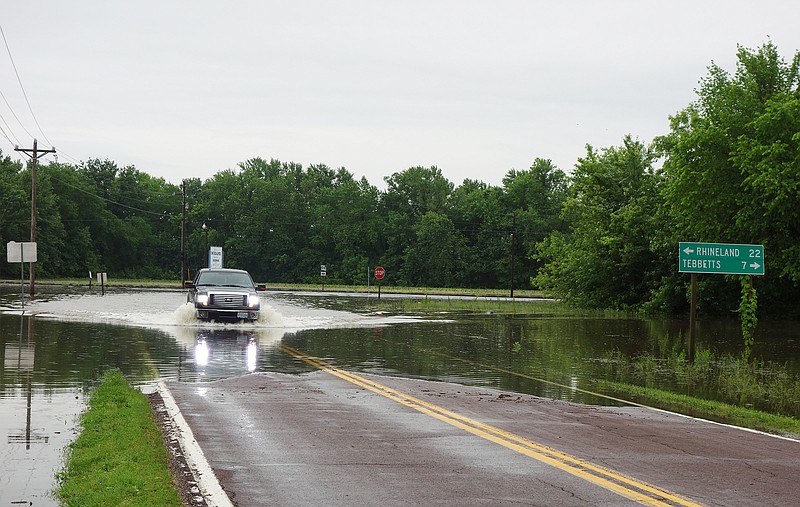With the potential threat of more severe flooding looming for the spring, the work of Missouri's Flood Recovery Advisory Working Group will not end anytime soon.
The flood recovery group is tasked with delivering to Gov. Mike Parson by the end of the month an initial report and list of recommendations to help Missouri better prepare and respond to future floods.
Acting Missouri Department of Natural Resources Director Dru Buntin said Missouri is currently potentially in a worse situation than it was at this time last year. Many levees remain damaged from last year's record flooding, and soil in the upper Midwest is already heavily saturated - before the spring snow melt and rains.
"We're going to continue to have an ongoing dialogue," Buntin said Monday after the flood recovery group's latest meeting.
The group's meetings are scheduled to continue into the spring; a final report is due to Parson in May.
Buntin said there may be on-site visits for some of those meetings - perhaps, on the Missouri River, to Atchison, Holt, Ray, Carroll and Callaway counties, as well as on the Mississippi River, to Clark, Pike, Lincoln and St. Charles counties - if local officials are interested.
He said that will give people a chance to elevate their concerns - including people who may at that time be affected by flooding.
"It's not as if this work is going to be complete in May," Buntin said. There will be long-term work to be done with people along state's major rivers, as well as with state and federal partners.
The group's next meeting is scheduled for 9 a.m. Jan. 17 at the Lewis and Clark State Office Building at 1101 Riverside Drive in Jefferson City. More information is available at dnr.mo.gov/floodrecovery.
The flood recovery group also heard a presentation Monday from Robert Jacobson, a supervisory research hydrologist with the U.S. Geological Survey's office in Columbia.
Jacobsen has been part of studies looking at how floods on the Missouri River are affected by policies and actions such as moving levees farther away from the river or widening the river's channel, and he discussed some examples, including from the Netherlands in Europe.
"The effect of climate change is starting to become discernible in the system," he said, evidenced by increasing runoff into the Missouri River drainage system in the past 20 years, particularly due to the 1997, 2011 and 2019 floods.
In a river management system that's already handling more water than it was designed for, a 10 percent increase in average annual runoff is expected by 2050, Jacobsen noted.
Climate change will also increase the variability between the river's highs and lows - making management of the river that much more challenging - and there will be more demand for the same pot of money funding infrastructure across the country, he said, adding it would be a good idea to find cost-effective approaches to flood management that are not too competitive with the needs of coastal cities such as Miami, New Orleans and New York City.

